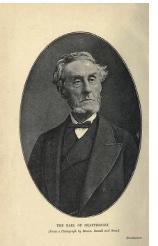
1805 - 1862 Person Name: George W. Bethune, 1805-1862 Hymnal Number: 443 Author of "There Is No Name So Sweet on Earth" in Great Hymns of the Faith Bethune, George Washington, D.D. A very eminent divine of the Reformed Dutch body, born in New York, 1805, graduated at Dickinson Coll., Carlisle, Phila., 1822, and studied theology at Princeton. In 1827 he was appointed Pastor of the Reformed Dutch Church, Rinebeck, New York. In 1830 passed to Utica, in 1834 to Philadelphia, and in 1850 to the Brooklyn Heights, New York. In 1861 he visited Florence, Italy, for his health, and died in that city, almost suddenly after preaching, April 27, 1862. His Life and Letters were edited by A. R. Van Nest, 1867. He was offered the Chancellorship of New York University, and the Provostship of the University of Pennsylvania, both of which he declined. His works include The Fruits of the Spirit, 1839; Sermons, 1847; Lays of Love & Faith, 1847; The British Female Poets, 1848, and others. Of his hymns, some of which liave attained to some repute, we have:—
1. Tossed upon life's raging billow. Sailor's Hymn. Appeared in the Christian Lyre, 1830; in the Seamen's Devotional Assistant the same year, and in Dr. Bethune's Lays, 1847, p. 168, in 3 stanzas of 8 lines. It "is said to have been the Author's first and favourite hymn, having been written when he was on a voyage to the West Indies, for the benefit of his health, in the year 1825" (Lyra Sac. Amer. p. 297). It is a "Sailor's Hymn;" as such it was given in Lyra Sac. Amer., and thence passed into The Hymnary, 1872, and other English collections.
2. O for the happy hour. Whitsuntide. "A Prayer for the Spirit," contributed to the Parish Hymns, Phila., 1843, and republished in the Lays, &c, 1847, p. 158, in 6 stanzas of 4 lines. It is found in many modern collections.
3. It is not death to die. A translation of Caesar Malan's "Non, ce n'est pas mourir," (q.v.) from his Lays, 1847, p. 141, in 5 stanzas of 4 lines. As stated above, Dr. Bethune died at Florence. His remains were taken to New York, and buried in Greenwood Cemetery. This hymn, in compliance with a request made by him before his death, was sung at his funeral. It is found in several English hymnals.
4. Light of the Immortal Father's glory. Evening. A translation of a Greek hymn. (q.v.). It appeared in his Lays, &c, 1847, p. 137, in 2 stanzas of 8 lines, and is in common use.
5. Farewell to thee, brother. Parting. "The departing Missionary," published in his Lays, &c, 1847, p. 170, in 5 stanzas of 4 lines, and included in Lyra Sac. Amer., 1868, and thence into English collections. It is not in common use in America.
6. O Jesus, when I think of Thee. Easter. This is said to bear the date of 1847. It was 1st pub. in his Life, &c, 1867. Included in Lyra Sac. Americana (where it is stated to have been found in MS. amongst the author's papers), and from the Lyra into English collections. It is an Easter hymn of no special merit.
7. Come, let us sing of Jesus. S. Schools. Published in 1850, suited to Sunday schools, and is found in Snepp's Songs of Grace and Glory and others.
8. O Thou Who in Jordan didst bow Thy meek head. Adult Baptism. Written for and much used by the Baptists. It is dated 1857.
9. There is no Name so sweet on earth. Name of Jesus. Said by Mr. H. P. Main to be by Dr. Bethune. It has been wrongly ascribed to E. Roberts, a musician.
10. When time seems short and death is near. Death anticipated. This was found in the author's portfolio, and was written on Saturday, April 27th, 1862, the day before his death at Florence (Life, &c, p. 409). It was included in the Lyra Sac. Amer., 1808, and from thence passed into one or two English hymnals.
In his Lays, &c, 1847, Dr. Bethune included the following "Christmas Carols for Sunday School Children”:
1. The Almighty Spirit to a poor, &c.
2. Joy and gladness, joy and gladness.
3. Full many a year has sped.
4. We come, we come, with loud acclaim.
In the same work there are also metrical renderings of Psalms ix., xix., xxiii., cxxvi., and cxxvii. In the Lyra Sacra Americana, 14 pieces by Dr. Bethune are given, including many of the above.
-John Julian, Dictionary of Hymnology (1907)
====================
Bethune, George Washington, p. 138, ii. Other hymns from his Lays of Love and Faith, 1847, are in common use:-
1. 'Tis He, 'tis He, I know Him now. Easter.
2. Upon the well by Sychar's gate. Resignation.
3. Yes, boar them to their rest. Evening. "Hymn to Night, suggested by the Bas-relief of Thorwaldsen."
--John Julian, Dictionary of Hymnology, Appendix, Part II (1907)
George W. Bethune


 My Starred Hymns
My Starred Hymns







